Spotting a Swiftie in the wild isn’t hard;
If they're not outwardly losing their freakin minds over the infamous struggle for ERAS TOUR tickets, they’re usually wearing their allegiance on their sleeves, often literally, in the form of T Swizzle merchandising.

To say that the merch is popular is an understatement; from sweaters, hoodies, tote-bags, beanies, all the way to Taylor Swift snowglobes and other knicknacks, fans have never had more ways to show their appreciation for Miss Americana herself, but here’s the plot twist;
While my own admiration for Taylor is well documented, I personally don’t own a single piece of merchandise.
Never have.
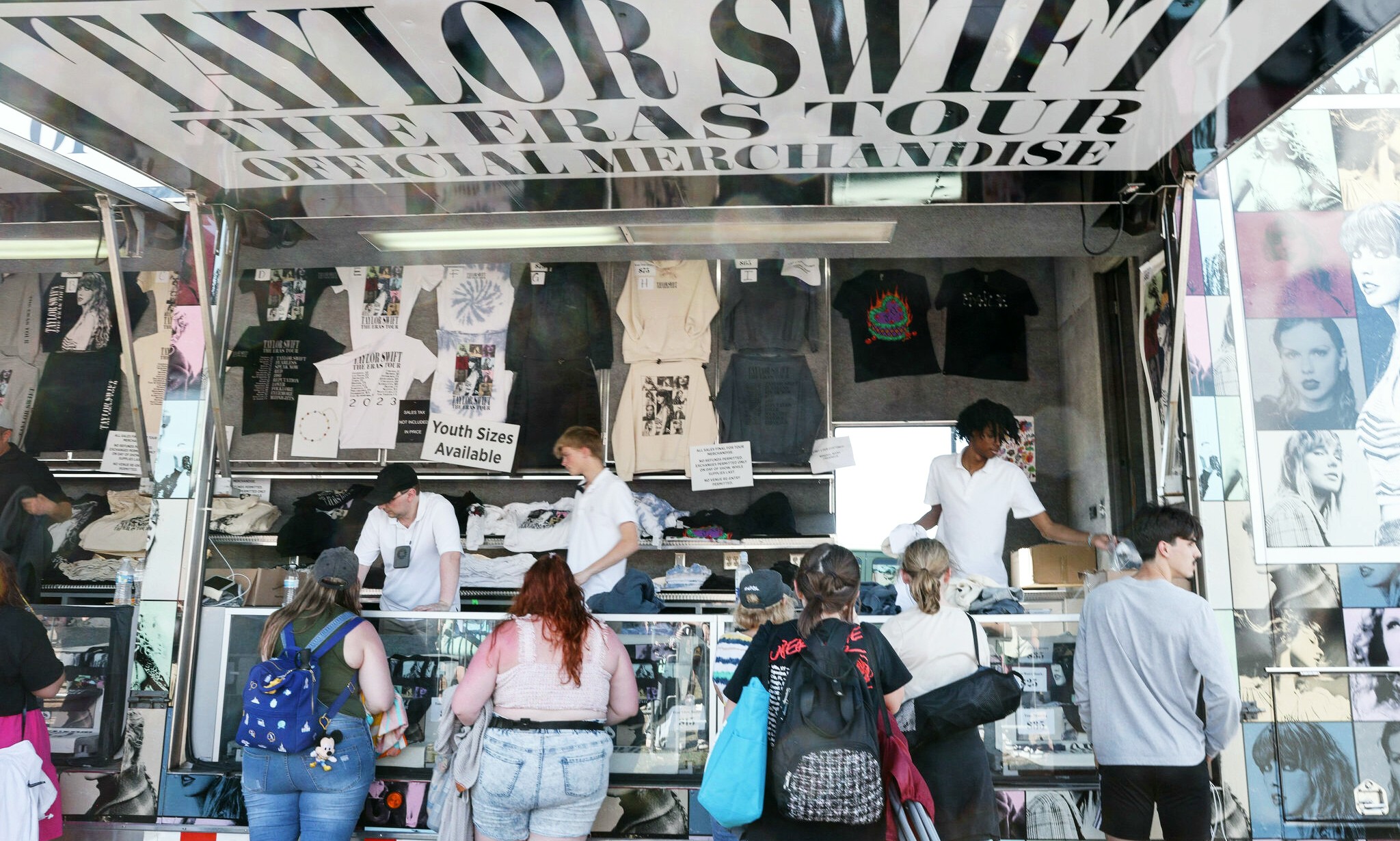
Why not?
Well, therein lays the issue, and the topic of today’s article; the complexities that arise when fast fashion is woven into the very fabric of cultural expression.
Sounds fascinating, doesn’t it?
It sounds TIRING, because it is; trying to make sense of the muddle created by corporations is exhausting, and that’s by design.
The deeper tiredness, however, stems from the 'cognitive dissonance'—the mental struggle that arises when we realize we're part of a system we're uncomfortable with. The more we learn, the stronger this conflict becomes, so we have very little motivation to learn.
In the weirdest and most abstract way, I get how Taylor felt recently when she had to break up with Matty Healy due to the extreme backlash she faced (For non-TS-fans; Heally is, without going into it too deeply, controversial to say the least…).
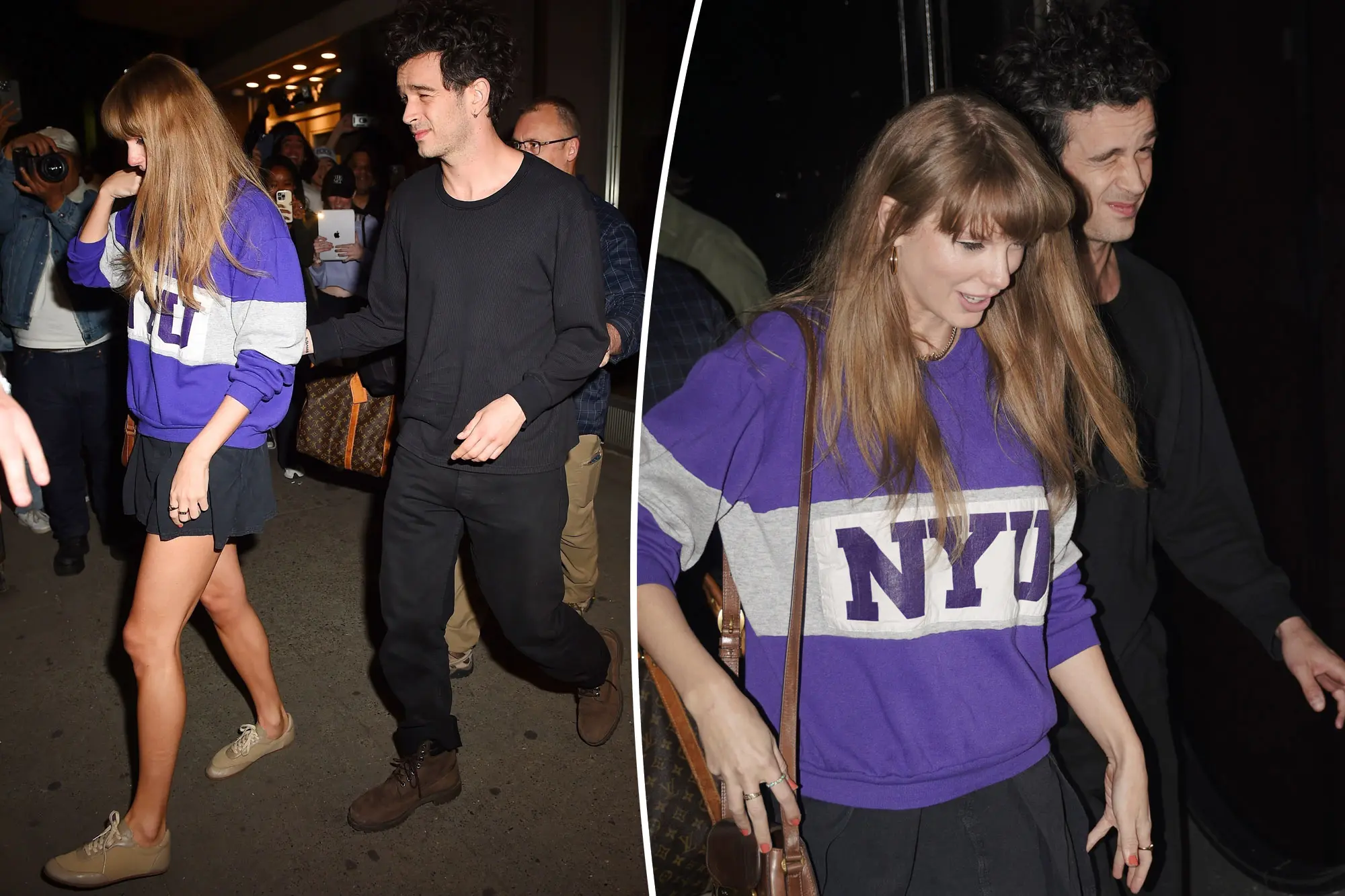
Taylor’s merch is my Healy.
She wanted something, something she felt was good, or at least the parts she liked were good… but she couldn’t have it, because it was problematic, to say the least. You scream “nuance” and they yell back “accountability!”, and while you're thinking of a sensible reply, they’re already writing a public letter to you demanding you change, or something like that…
Long story short, without seeming insensitive, Taylor, I get it; you wanted Matty, I wanted your merchy, just like you couldn’t ignore what it was doing to your brand, I can’t ignore what fast fashion is doing to… well, fashion! And to the world, and to people…
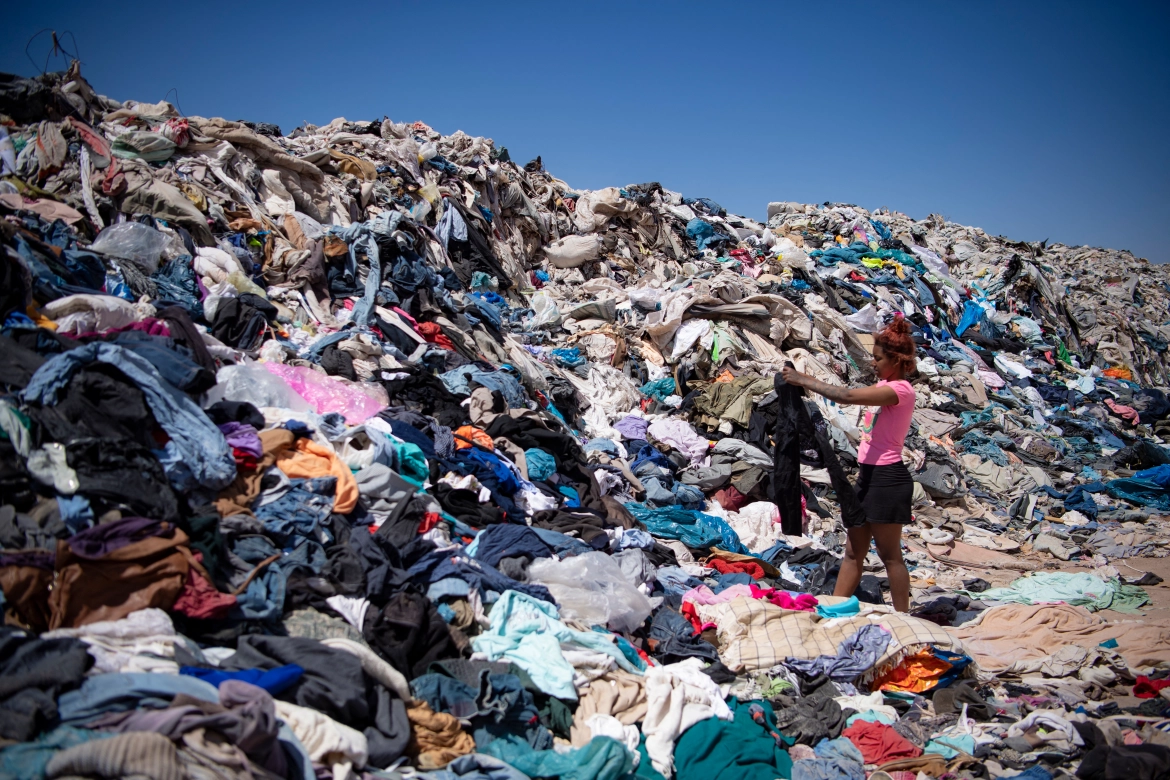
Mine is really less about “public backlash” than personal morals, but the principle remains the same; I just can't, but ironically, I also don’t judge people who do (buy her merch, that is) because here’s the honest to God truth; if I wasn’t poor af growing up in a third world country, I probably would’ve bought some of her merch. Or all of it, if I could…
So by the time I was living in a non-disenfranchised way, in Australia, with a normal salary, I was already waaay too acutely aware of what Fast Fashion was and the effect it had, so the train had already left the station, so to speak.
It wasn’t a clean transition either; for a long time, I found myself both consciously and subconsciously wrestling with the dissonance. I would think stuff like “the Swift empire is so big, one of her nicknames is literally ‘The Music Industry’, how acquainted is she really with the logistical details of her merch?” and immediately debate myself back with a more valid point about power and responsibility.
The thing is, Taylor Allison Swift is no mere musician; her appeal is not just in her poetic lyricism, catchy melodies or spectacular showmanship.
No, TS is the complete package deal; by taking so deftly from her personal life, she has allowed us glimpses into what feels like not only her soul, but also, our own.
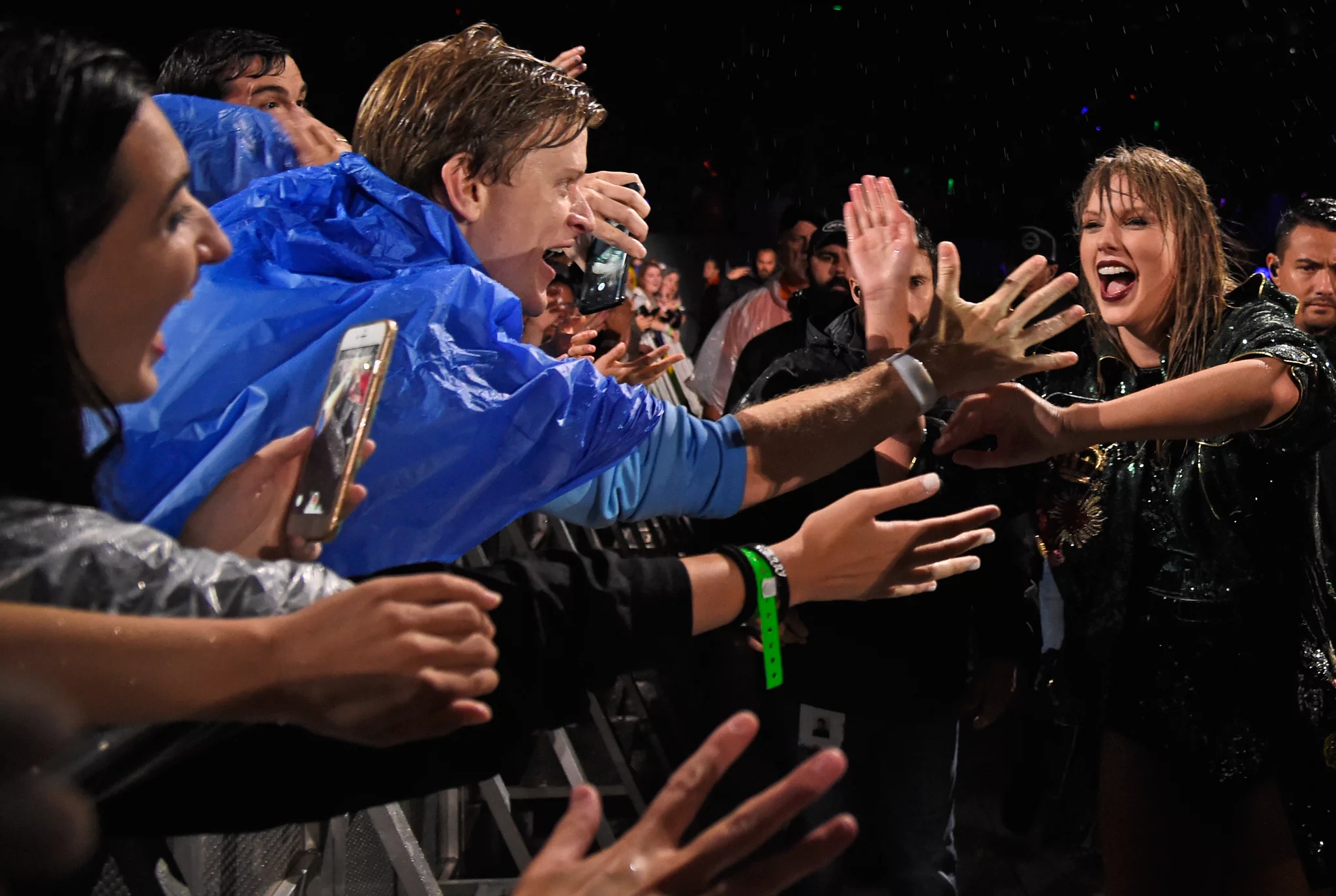
When she articulates things I’ve felt but could never put my finger on exactly, I automatically imagine that I’m wrapped in her all-encompassing artistic expression that goes way beyond songs or fan interactions or any individual thing she does; the true TS fan gets to experience something that is greater than the sum of its parts.
Because of all this and more, Taylor is not the kind of musician where you can just easily separate the artist from the art; it’s for this very same reason that, as a hardcore fan (stan?), I found myself naturally making a consequence-buffer for Taylor, excusing her business strategies so that I could keep enjoying being parasocial-BFFs with Taylor Swift.
If I had kept a diary of my mental debates, a psychiatrist could have had a field day with them…
When the dust settled, there was a mix of emotions, but most of all, I was angry at Taylor for her merch ethics; at the end of the day, I didn’t want Taylor’s merch to be Fast Fashion.
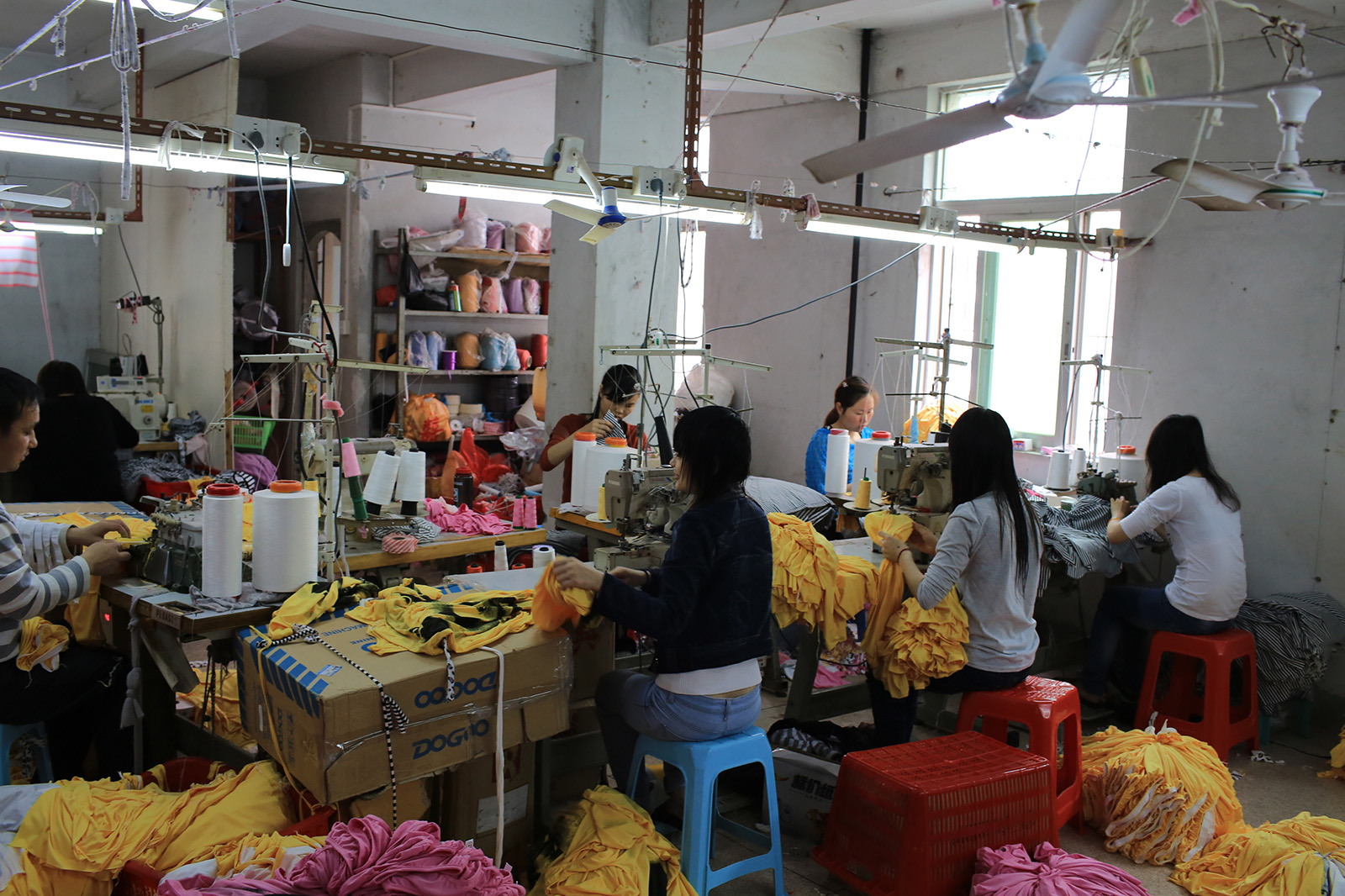
When one piece of the greater whole is rotten, it might be easy to ignore the bad part a lot of the time, but my point is this; is it the right thing to do?
Look, I’ve done the research; Fast Fashion doesn’t need to exist. It exists because of things like human greed and complacency, and results in misery and death, literally.
I don’t think Tay Tay is sitting there with her cats, plotting how to make the cheapest possible tops that get ruined after one wash (seriously, look it up), but it did happen, and it happened because she allowed people around her to make that decision for her.
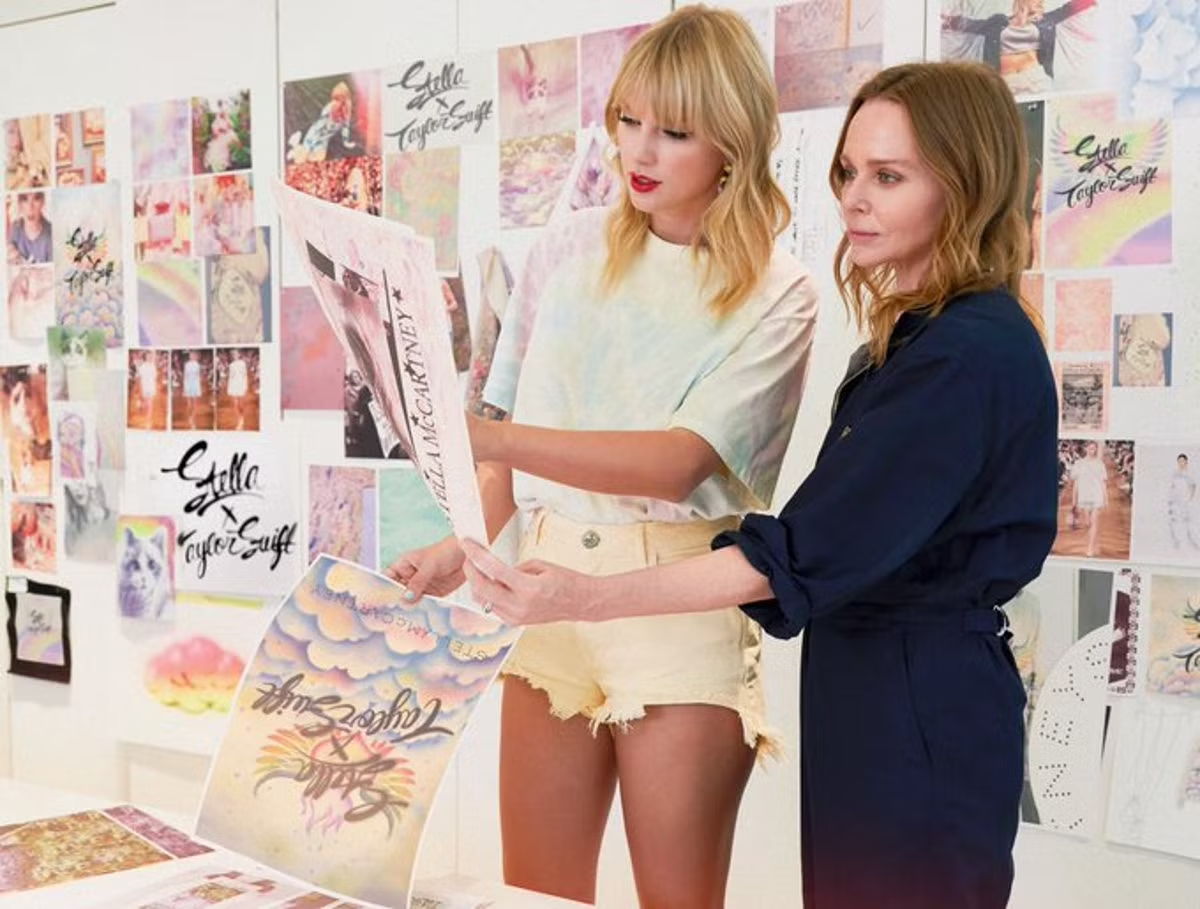
It’s not like she doesn’t know about better options existing - in 2019 she partnered with Stella McCartney - an known advocate for sustainable fashion - but apart from the hollow PR announcement, I found no concrete evidence of ethical and sustainable practices following the collaboration.
I searched their official website but it only gave me a vague overview of the merch production process. I could neither find the source of the materials nor the factories where they were made, and if someone goes to trouble to make their fashion production process sustainable, they usually don’t exactly want to keep it quiet, if you get my drift.
I’m not trying to make Taylor the scapegoat here either; the lack of transparency in the pop merchandise sector is not unique to Swift. It's an issue that permeates the entire industry.
Corporations often hide behind glossy promotional materials and vague claims of sustainability, making it almost impossible for consumers to make informed choices.
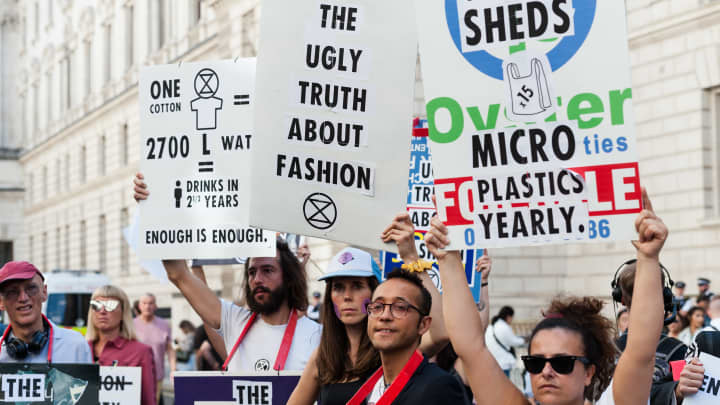
They exploit our desire to connect with our favorite artists and try to offset their guilt onto us by funding campaigns that shift the blame onto consumers instead of the actual decision makers that create the issue in the first place.
And the issue extended beyond the synthetic TS cardigans or a the semi-transparent Swift Tour t-shirts; it’s a problem that is as pervasive as it is entrenched, so at the end of the day, it’s still not easy to blame Taylor directly for the merch.
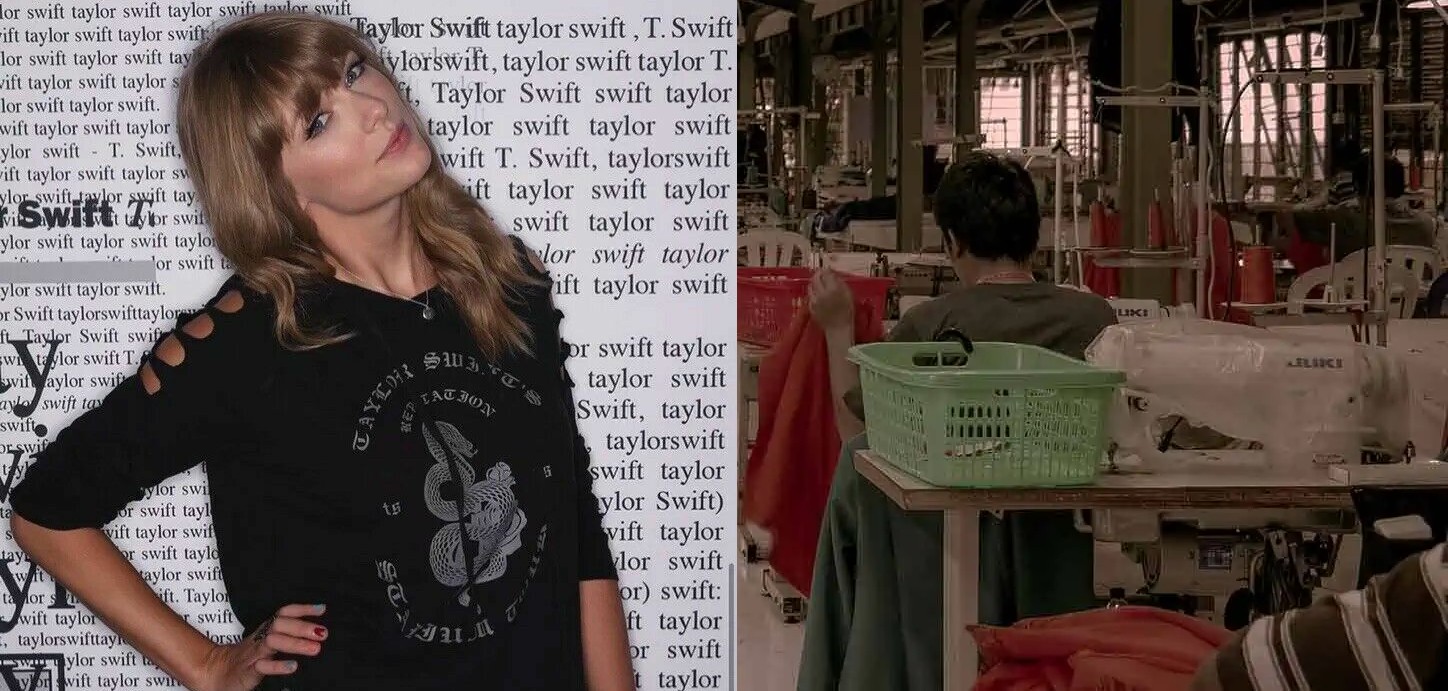
However, here’s where I do find fault with her personally; she is one of the best situated people in the world to pioneer the necessary change, and she hasn’t done it.
Yet.
Read more Fashion Brain Analysis
